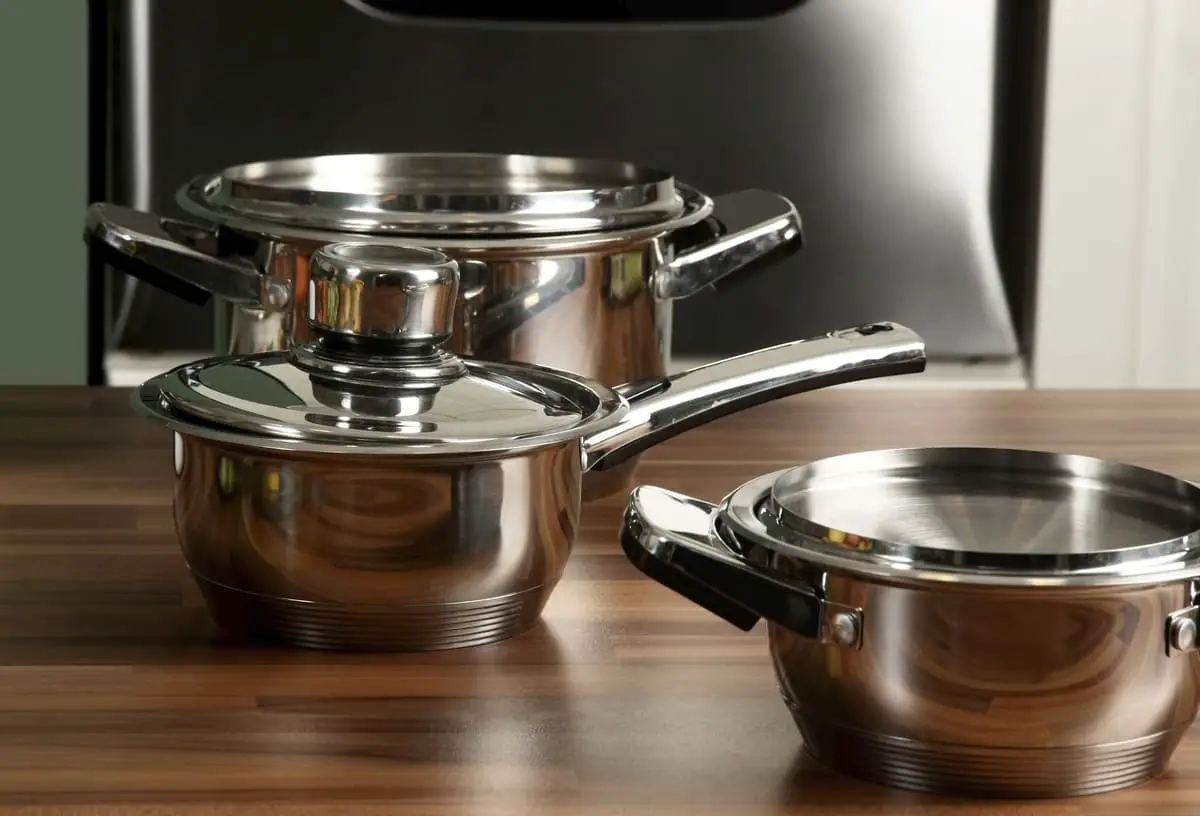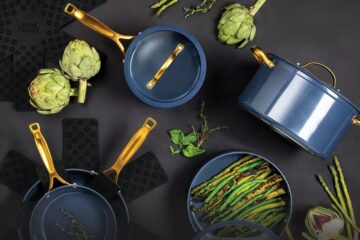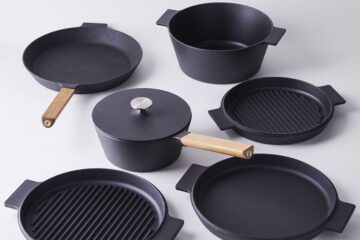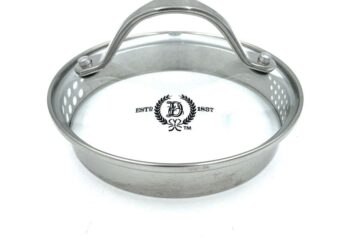Non-stick aluminum cookware has become a popular choice for many home cooks due to its convenience and ease of use. However, concerns have been raised about its safety, particularly regarding the potential release of harmful chemicals into food during cooking.
While non-stick coatings can make cooking and cleaning easier, some studies have suggested that the chemicals used to create these coatings, such as perfluorooctanoic acid (PFOA), may be harmful to human health. PFOA has been linked to a range of health issues, including cancer, thyroid disease, and developmental problems in children. As a result, many people are now questioning whether non-stick aluminum cookware is a safe choice for their kitchen.
Despite these concerns, there is no definitive answer to the question of whether non-stick aluminum cookware is safe. While some studies have suggested that the chemicals used in non-stick coatings can be harmful, others have found no significant risk. As with many health-related issues, the answer is likely to be complex and dependent on a range of factors, including the specific type of cookware, the cooking temperature, and the length of time the cookware is used.
What is Non-Stick Aluminum Cookware?
Non-stick aluminum cookware is a type of cookware that has a non-stick coating applied to the surface of the aluminum. The non-stick coating is usually made of polytetrafluoroethylene (PTFE), which is commonly known as Teflon. The purpose of the non-stick coating is to prevent food from sticking to the surface of the cookware, making it easier to cook and clean.
Aluminum is a popular material for cookware because it is lightweight, durable, and conducts heat well. However, aluminum is also a reactive metal, which means that it can react with acidic or alkaline foods, causing the food to take on a metallic taste. To prevent this, aluminum cookware is usually coated with a non-reactive material, such as stainless steel or a non-stick coating.
Non-stick aluminum cookware comes in a variety of shapes and sizes, including frying pans, saucepans, and stockpots. It is often sold as part of a set that includes multiple pieces of cookware, such as a 10-piece or 12-piece set. Non-stick aluminum cookware sets are popular because they are affordable, lightweight, and easy to clean.
Is Non-Stick Aluminum Cookware Safe?
When it comes to choosing cookware, safety is a top priority. Non-stick aluminum cookware is a popular choice due to its convenience and affordability. However, there are concerns about the safety of this type of cookware. In this section, we will explore the safety of non-stick coatings, the safety of aluminum cookware, and the risks of using non-stick aluminum cookware.
The Safety of Non-Stick Coatings
Non-stick coatings are made from a variety of materials, including polytetrafluoroethylene (PTFE), ceramic, and diamond. PTFE is the most common material used in non-stick coatings, and it has been the subject of safety concerns. When PTFE is heated to high temperatures, it can release toxic fumes that can cause flu-like symptoms in humans and can be fatal to birds. However, most non-stick cookware is designed to be used at temperatures below the point at which PTFE breaks down, so the risk of exposure to toxic fumes is low.
The Safety of Aluminum Cookware
Aluminum is a popular material for cookware due to its excellent heat conductivity and affordability. However, there are concerns about the safety of aluminum cookware. When aluminum is exposed to acidic foods, it can leach into the food and cause health problems. High levels of aluminum in the body have been linked to Alzheimer’s disease and other health problems. However, the amount of aluminum that leaches into food from aluminum cookware is generally considered to be low, and the risk of health problems is considered to be low.
The Risks of Using Non-Stick Aluminum Cookware
The risks of using non-stick aluminum cookware are a combination of the risks of non-stick coatings and the risks of aluminum cookware. The main risk of non-stick coatings is the potential for exposure to toxic fumes when the cookware is heated to high temperatures. The main risk of aluminum cookware is the potential for aluminum to leach into food. While the risks of each are generally considered to be low, the combination of the two may increase the risk of health problems.
Alternatives to Non-Stick Aluminum Cookware
When it comes to cookware, non-stick aluminum is a popular option due to its convenience and affordability. However, concerns about the safety of non-stick coatings have led many people to look for alternatives. Here are some options to consider:
Stainless Steel Cookware
Stainless steel is a durable and versatile material that is a popular choice for cookware. It’s non-reactive, which means it won’t leach chemicals into your food, and it can be used on any type of stovetop. While stainless steel isn’t non-stick, it does have natural non-stick properties when heated properly and used with oil or butter. It’s also easy to clean and maintain.
Cast Iron Cookware
Cast iron is another popular alternative to non-stick aluminum cookware. It’s durable, retains heat well, and can be used on any stovetop, including induction. Cast iron can also be seasoned to create a natural non-stick surface. However, it requires more maintenance than other types of cookware, as it needs to be seasoned regularly and should not be soaked in water.
Ceramic Cookware
Ceramic cookware is a newer option that has gained popularity in recent years. It’s made from natural materials and is non-reactive, making it a safe choice for cooking. Ceramic is also non-stick, so it’s a good option for those who are used to cooking with non-stick aluminum. However, it can be more fragile than other types of cookware and may not be as durable in the long run.
Conclusion
In conclusion, non-stick aluminum cookware can be safe when used properly. It offers several health benefits, including reducing the amount of fat and oil needed for cooking and reducing the risk of sticking. However, it is important to note that overheating non-stick aluminum cookware can release harmful chemicals into the air and potentially cause health problems.
When selecting non-stick aluminum cookware, look for brands that are PFOA-free and have a durable, scratch-resistant coating. It is also recommended to avoid using metal utensils on non-stick surfaces, as this can cause damage and potentially release harmful chemicals.
Overall, non-stick aluminum cookware can be a convenient and healthy option for cooking, as long as it is used properly and with caution. By following these guidelines, individuals can enjoy the benefits of non-stick aluminum cookware while minimizing any potential health risks.



